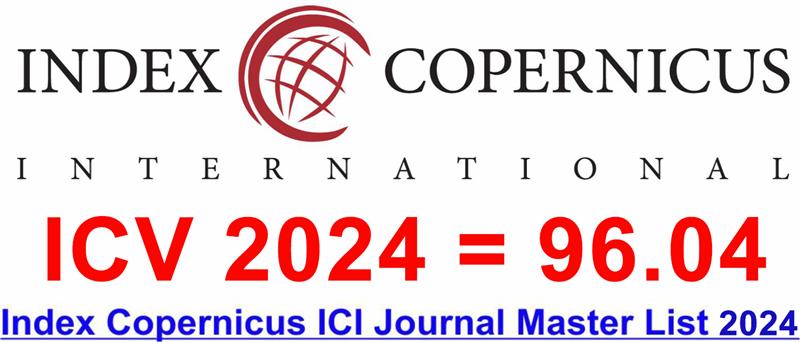Influence of Preschool Teachers’ Characteristics on Children’s Socio-Emotional Developmental Skill in Dutsin-Ma, Katsina State, Nigeria
DOI:
https://doi.org/10.60072/ijeissah.2023.v1i02.004Abstract
In the provision of quality preschool education, teachers occupy a serious and elusive place. They are the strength of the entire educational arrangement as rightly stated in the National Policy on Education that no education can rise above the quality of its teachers (Federal Republic of Nigeria, 2013). Therefore, the study investigated the influence of the teachers’ characteristics on children’s socio-emotional developmental skills in the Dutsin-Ma Local Government Area. The study employed a descriptive research design of the observation type. The sample size comprised 25 preschool entrées from both private and public schools, 50 teachers and 250 preschool children who were selected through a simple random sampling technique. The Children’s Socio-Emotional Developmental Skill Rating Scale (CSEDSRS) with a reliability index of 0.77 was used for data collection. Hypotheses were tested using Analysis of Variance. The result indicated a significant influence of teachers’ area of specialization, working experience, and qualification on the socio-emotional developmental skills of children. The study concluded that teachers are critical to supporting children’s socio-emotional developmental skills in preschool education centres. It was recommended that teachers with a specialization in Early Childhood Education (ECE), high qualifications and good years of working experience be employed to work in ECE centres. This would help to improve the children’s socio-emotional skills in preschool education centres.
Keywords:
Teachers’ Characteristics, Preschoolers, Socio-Emotional Developmental Skill, Early Childhood EducationReferences
Adedigba, O. & Agarry, R.O. (2013). Wise investment: The role of early childhood education in National Development. Journal of Early Childhood and Primary Education, KWASU. Vol.2 Page 1-11.
Adedigba, O. (2015). Assessing the physical and social climate of early childhood education learning environment in kwara state, nigeria. URI: http://hdl.handle.net/123456789/1837
Adedigba, O. & Olofintoye, B.O. (2019). Childhood education teacher training and teaching of science and mathematics: Implication for Nigerian teacher education. Journal of Early Childhood Association of Nigeria. 8(2); 656- 681. https://uilspace.unilorin.edu.ng/handle/20.500.12484/6508
Apata, F. S (2013). Teachers’ experience and students’ numerical proficiency in solving physics problems in secondary schools. African Research Review 7 (1), 285-297 DOI: http://dx.doi.org/10.4314/afrrev.v7i1.19
Arace, A., Prino, L. E., & Scarzello, D. (2021). Emotional competence of early childhood educators and child socio-emotional wellbeing. International Journal of Environmental Research and Public Health, 18(14), 7633. https://doi.org/10.3390/ijerph18147633
Bowman, B. T., Donovan, M. S., & Burns, M. S. (2001). Eager To Learn: Educating Our Preschoolers.[Full Report and Executive Summary.]. National Academy Press, 2101 Constitution Avenue, NW, Lockbox 285, Washington, DC 20055.
Clements, R. (2004). An investigation of the status of outdoor play. Contemporary issues in early childhood, 5(1), 68-80.
Clotfelter, C. T., Ladd, H. F., & Vigdor, J. L. (2007). How and why do teacher credentials matter for student achievement? DOI 10.3386/w12828
Cohen, E. G., & Lotan, R. A. (2014). Designing groupwork: strategies for the heterogeneous classroom third edition. Teachers College Press.
Copple, C., & Bredekamp, S. (2009). Developmentally appropriate practice in early childhood programs serving children from birth through age 8. National Association for the Education of Young Children. 1313 L Street NW Suite 500, Washington, DC 22205-4101. Web site: http://www.naeyc.org/
Dewaele, J. M., Gkonou, C., & Mercer, S. (2018). Do ESL/EFL teachers’ emotional intelligence, teaching experience, proficiency and gender affect their classroom practice? Emotions in second language teaching: Theory, research and teacher education, 125-141. DOI: 10.1007/978-3-319-75438-3_8.
Federal Republic of Nigeria (2004). National Policy on Education. Federal Ministry Education. NERDC Press. Lagos
Federal Republic of Nigeria (2013). National Policy on Education (6th edition). NERDC. Abuja https://educatetolead.files.wordpress.com/2016/02/national-education-policy-2013.pdf
Filgona, J., & Sakiyo, J. (2020). Teachers’ academic qualification as a predictor of attitude and academic achievement in geography of senior secondary school students in Adamawa State, Nigeria. International Journal of Research and Review, 7(11)
Goodman, A., Joshi, H., Nasim, B., & Tyler, C. (2015). Social and emotional skills in childhood and their long-term effects on adult life. http://www.eif.org.uk/wp-content/uploads/2015/03/EIF-Strand-1Report-FINAL1.pdf
Howes, C., Burchinal, M., Pianta, R.C., Bryant, D., Early, D., Clifford, R.M. (2008). Ready to learn? Children's pre-academic achievement in pre-kindergarten programs. Early Childhood Research Quarterly, 23(1), 27-50. https://doi.org/10.1016/j.ecresq.2007.05.002
Howes, C., James, J., & Ritchie, S. (2003). Pathways to effective teaching. Early Childhood Research Quarterly, 18(1), 104-120. https://doi.org/10.1016/S0885-2006(03)00008-5
Hwang, N., & Kisida, B. (2021). Spread Too Thin: The Effects of Teacher Specialization on Student Achievement. EdWorkingPaper No. 21-477. Annenberg Institute for School Reform at Brown University.
Ijaiya, N.Y. (2000). Failing schools and national development: Time for reappraisal of school effectiveness in Niger. Niger Journal of Educational Resources Evaluation, 2(2), 42.
Kamau, N. N. (2016). Influence of Teachers’ Characteristics on Pre-school Children in Learning Reading Activity in Langata Sub-county, Nairobi County (Doctoral dissertation, University of Nairobi).
Krejcie, R. V., & Morgan, D. W. (1970). Determining sample size for research activities. Educational and psychological measurement, 30(3), 607-610. https://doi.org/10.1177/001316447003000308
Kosgei, A., Mise, J. K., Odera, O., & Ayugi, M. E. (2013). Influence of teacher characteristics on students’ academic achievement among secondary schools.
Kristine, M. P., & Paula M. B. (2007). Development of socio-emotional competence in preschool age children. Australian Journal of Guidance & Counselling Volume 17(1)111. https://doi.org/10.1375/ajgc.17.1.81
Maduewesi, C. (2005). Children today: Ibadan. Heinemann Educational Books (Nig.) Ltd
McCabe, P.C, Altamura, M. (2011). Empirically valid strategies to improve social and emotional competence of preschool children. Psychology in the Schools. 48(5):513-540.; https://doi.org/10.1002/pits.20570
Mondi, C.F.,Giovanelli, A., Reynolds,A.R..(2021). Fostering socio-emotional learning through early childhood intervention. International Journal of Child Care and Education Policy volume 15. https://doi.org/10.1186/s40723-021-00084-8
Mugenda, O., & Mugenda, A., (2003). Research methods, qualitative & quantitative approach. Nairobi Press.
Muhammad, L. (2021). The effects of teachers’ academic qualification and experience on students’ achievement and interest in accounting in Kaduna State. Global Journal of Education, Humanities and Management Sciences (GOJEHMS); 3 (1) 242 – 252.
Musau, L.M. & Abere, M.J. (2015). Teacher qualification and students’ academic performance in science mathematics and technology subjects in Kenya. International Journal of Educational Administration and Policy Studies. 7(3), pp. 83-89, https://files.eric.ed.gov/fulltext/EJ1075871.pdf
National Scientific Council on the Developing Child. (2004). Children's emotional development is built into the architecture of their brains: Working Paper No. 2. Retrieved on from www.developingchild.harvard.edu
Obonyo, D. D., Bin, C., & Maina, G. F. (2018). Is teacher education level and experience impetus for student achievement? Evidence from public secondary schools in Kenya. American Journal of Educational Research and Reviews, 3(21), 14.
Peisner-Feinberg, E. S., Burchinal, M. R., Clifford, R. M., & Culkin, M. L. Howes. C., Kagan, SL, & Yazejian, N.(2001). The relation of preschool childcare quality to children’s cognitive and social developmental trajectories through second grade. Child Development, 72(5), 1534-1553.
Pianta, R. C., & Stuhlman, M. W. (2004). Teacher-child relationships and children's success in the first years of school. School psychology review, 33(3), 444-458. DOI:10.1080/02796015.2004.12086261
Pramling, N., & Samuelsson, I. P. (Eds.). (2011). Educational encounters: Nordic studies in early childhood didactics (Vol. 4). Springer Science & Business Media.
Raver, C. C., Jones, S. M., Li-Grining, C. P., Metzger, M., Champion, K. M., & Sardin, L. (2008). Improving preschool classroom processes: Preliminary findings from a randomized trial implemented in Head Start settings. Early childhood research quarterly, 23(1), 10-26. https://doi.org/10.1016/j.ecresq.2007.09.001
Siedlecki, S.L. (2020). Understanding descriptive research designs and methods. Clinical Nurse Specialist CNS34(1):8-12. DOI:10.1097/NUR.0000000000000493.
Strong, S. (2006). Early childhood education and care. Paris: Organization for Economic Co-operation and Development, 45-97.
Sylva, K., Melhuish, E., Sammons, P., Siraj-Blatchford,I. & Taggart, B. (2010). Early childhood matters: Evidence from the effective preschool and primary education project. Routledge, London/New York. https://www.routledge.com/Early-Childhood-Matters-Evidence-from-the-Effective-Pre-school-and-Primary/Sylva-Melhuish-Sammons-Siraj-Blatchford-Taggart/p/book/9780415482431
Sooter, T. (2013). Early childhood education in Nigeria: Issues and problems. Journal of Educational and Social Research, 3(5), 173-179
Sridhar., N., & Malliga, T. (2015). A study on the impact of motor, cognitive, language and socio-emotional development of preschool children. Scholarly Research Journal for Interdisciplinary Studies.VOL-3/21 Page 1179-1184.
Subuola C.A., (2017). Quality control in early childhood education. British Journal of Education Vol.5, No.8, pp.63-72.
Sylva, K., Melhuish, E., Sammons, P., Siraj-Blatchford, I., & Taggart, B. (2004). The effective provision of pre-school education (EPPE) project: Findings from pre-school to end of key stage 1
Tahir, G., & Zone, I. C. W. (2003). National capacity building of lead teacher training institutions in Mozambique: a report.
Voxco (2021). Descriptive research design. Retrieved from https://www.voxco.com/blog/descriptive-research-design/. https://www.voxco.com/blog/descriptive-research-design/
























